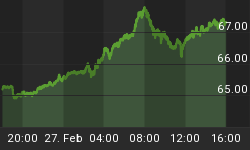It’s a well-established fact that the business of curing diseases can be a particularly lucrative one, and it’s not uncommon for tiny, obscure, single-product biotech companies to become multi-billion dollar rock stars virtually overnight whenever they show the promise of a big breakthrough. By the same token, biotechs are a train wreck waiting to happen and can go bust faster than greased lightning whenever they fail to live up to their inflated billings.
It’s the latter scenario that has unfortunately been wreaking havoc on the hallowed industry.
According to the industry’s favorite navel gazer BioPharma Dive, no less than 11 biopharmaceutical companies have filed for bankruptcy in the year-to-date, nearly 3x the average number who sought the shield over the past decade. Granted, the highest-profile filing in the space so far has not been by a biotech; rather, pain management company Purdue Pharma takes the cake for the biggest pharma company to go bust this year after being hit with $10 billion in settlements of lawsuits for its opioid drug oxycontin.
However, that cannot detract from the fact that the biotech sector is going through one of its worst fallouts in its rather short but proud history, especially considering that biotechs rarely go under thanks to tons of speculators lining up behind them.
Sure, there’s an occasional Theranos that tries to disrupt whole industries and fails miserably but mostly these small biotech companies are niche players.
A common thread running through fallen biotechs: business struggles, mountains of litigation, high cash-burn and high debt. Others have been companies that sold dubious drugs or those that went public before their key drugs had undergone any meaningful clinical evaluation.
Related: The Infinite Possibilities Of Cosmic Energy
And this has been reflecting badly on the entire sector. After an epic run that saw the sector’s valuation more than double in the space of just two years, the SPDR S&P Biotech (XBI) has sunk 13% since its July 2018 all-time high.

Others that have taken the bankruptcy route include Insys Therapeutics, which, like Purdue Pharma, has been caught in opioid litigation, while Pernix Therapeutics (PTXTQ) is set to share the same fate after disappointing sales of its opioid migraine drug Zohydro due to competition from generics.
Yet, it’s the fall of Achaogen Inc. (AKAOQ), developer of one of the world’s essential new drugs, that has been particularly unnerving. Achaogen’s bankruptcy speaks to the major challenges facing aspiring antibiotics marketers. Case in point: antimicrobial resistance has emerged as a major public health threat over the past couple of years. Yet, drugmakers, both big and small, have been exiting the space in droves mostly due to unfavorable financial prospects.
In the case of Achaogen, the company bet the farm on its antibiotic Zemdri after it won regulatory approval by the Food and Drug Administration (FDA) in June 2018. In July this year, the World Health Organization (WHO) added Zemdri to its list of essential new medicines. However, the badges of approval could not save Achaogen, with the company forced to enter bankruptcy less than a year later after lackluster sales despite multiple layoffs and scaling down its R&D ambitions.
Big pharma in trouble
But it’s not just underfunded biotechs that have been struggling. Several big pharma names could soon join this dubious walk of shame.
CreditRiskMonitor claims it has a near-perfect track record in predicting bankruptcy. The agency says adding that all drug companies that have gone bankrupt this year had a FRISK score of 1 or 2 before taking the plunge.
On average, pharma companies have a FRISK score of 7. Going by this metric, Teva Pharmaceutical Industries (NYSE:TEVA) and Bausch Health Companies (NYSE:BHC) have below-average FRISK scores of 3. Bear in mind that these are large companies with market caps in the $10 billion range.
The most worrisome part: this could be just the beginning of the storm. As one CEO of a bankrupt biotech firm told BioPharma Dive:
"You're probably going to see more of these situations going forward, where a company is preclinical, went public and is left on their own and has to raise additional money from the public markets, and they flounder. "
BioPharma Dive has listed 31 biopharmaceutical companies at high risk of going bust.
By Anes Alic for SafeHaven.com
More Top Reads From Safehaven.com:
















